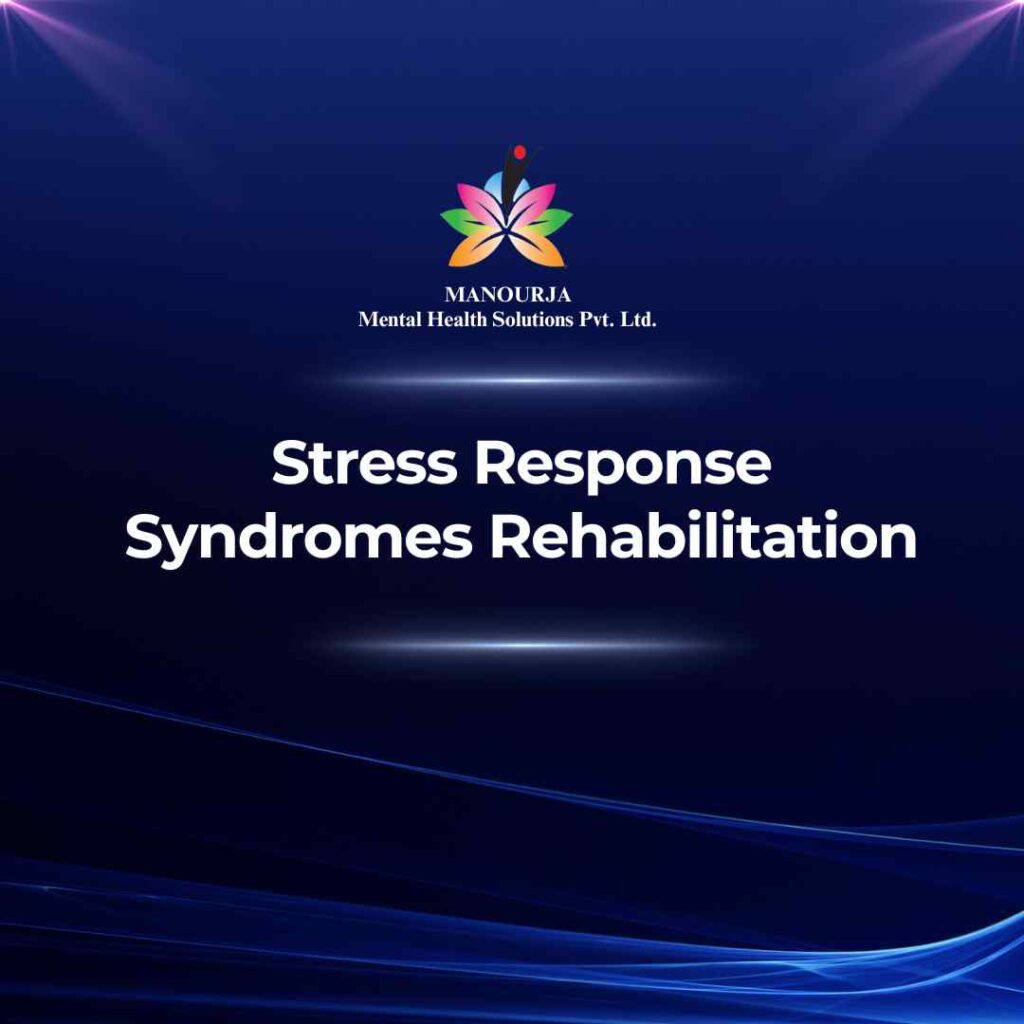Stress Response Syndromes Rehabilitation

Signs and Symptoms of Stress Response Syndromes
- Emotional distress such as feelings of sadness, hopelessness, or emotional numbness.
- Anxiety that might manifest as restlessness, nervousness, or worry.
- Behavioral changes like withdrawal from social activities or noticeable changes in daily routines.
- Trouble concentrating which may affect performance at work or school.
- Sleep disturbances, including difficulties in falling asleep or staying asleep.
- Physical symptoms, such as headaches, stomachaches, or other physical pains that don’t seem to have a clear physical cause.
Indicators for Outpatient Psychosocial Rehabilitation (OPD)
- Mild to Moderate Symptoms: If the symptoms are present but do not drastically impede daily functioning.
- Good Support System: The presence of a strong and supportive network of family or friends.
- Commitment to Recovery: The individual is motivated and capable of adhering to a treatment schedule while living at home.
Indicators for Inpatient Psychosocial Rehabilitation (IPD)
- Severe Symptoms: The individual exhibits intense symptoms that significantly impair their ability to function.
- Safety Concerns: There are concerns about the individual’s safety or the safety of others around them.
- Lack of Support: The individual does not have a stable or supportive environment, which could hinder recovery efforts.
Factors Influencing the Decision
- The severity of the disorder and its impact on an individual’s life.
- Safety considerations, including risk to self or others.
- Availability of a supportive environment.
- History of treatment responses and effectiveness of previous interventions.
How Psychosocial Rehabilitation Aids in Treating Stress Response Syndromes
Psychosocial rehabilitation focuses on helping individuals adapt to stress, improve their coping mechanisms, and foster better emotional and social functioning. The goal is to enhance their skills to deal with stressors effectively, thus minimizing the impact on their daily lives.
Specific Techniques and Approaches at MANOURJA
- Cognitive Behavioral Therapy (CBT): To challenge and modify unhelpful cognitive distortions and behaviors.
- Interpersonal Therapy (IPT): To enhance communication skills and increase support.
- Skill Development Workshops: Focused on stress management, resilience building, and healthy coping strategies.
- Mindfulness and Relaxation Techniques: To help reduce symptoms of anxiety and improve overall mental health.
Steps in Psychosocial Rehabilitation at MANOURJA
- Initial Assessment: A thorough assessment to understand the individual’s needs, strengths, and areas of difficulty.
- Developing a Personalized Plan: Tailoring a treatment plan that includes specific goals and therapies suited to the individual.
- Engagement in Therapeutic Interventions: Implementing the treatment plan through regular therapy sessions, workshops, and activities.
- Ongoing Evaluation: Regularly assessing the individual’s progress and making necessary adjustments to the plan.
- Preparation for Discharge and Aftercare: Establishing a continued support plan to help the individual transition back to daily life.
“Each step you take is progress, no matter how small.”
